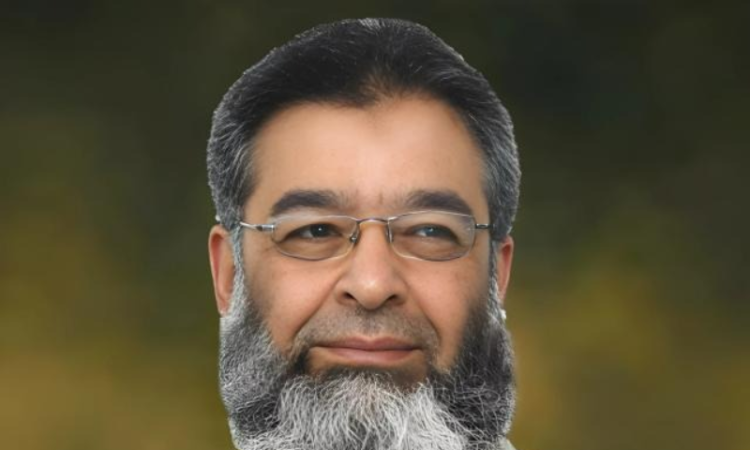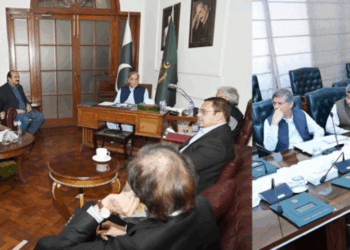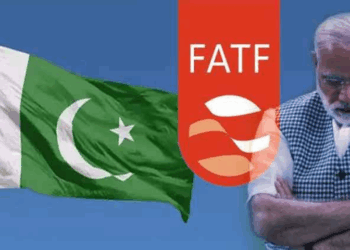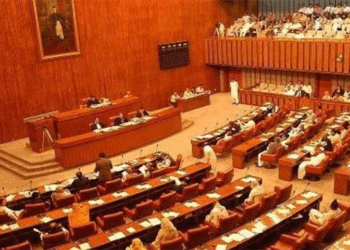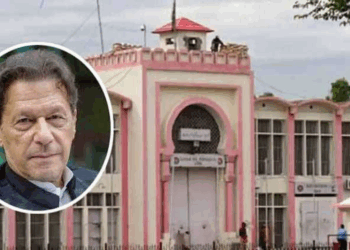By Muhammad Mohsin Iqbal
Parliament is a cornerstone of democracy, serving as the principal forum where national and international confusions and conflicts are resolved. It is the crucible for decision-making that shapes the destiny of nations, as representatives argue their principled positions while keeping public aspirations in mind. In this regard, the role of the Speaker of the National Assembly is pivotal. The Speaker act as a bridge between the government and the opposition, ensuring that dialogue and debate are conducted in a manner that upholds democratic values and fosters national unity. Speaker Sardar Ayaz Sadiq, known for his adaptable and amiable demeanor, embodies the essential qualities for this demanding position. His notable ability to maintain working relationships with all political parties underscores his skill in fostering productive dialogue within a politically charged atmosphere.
Sardar Ayaz Sadiq’s term as Speaker has been distinguished by his dedication to inclusivity and dialogue. He has shown an exceptional capacity to connect with members from all political factions, creating a space where a variety of perspectives can be shared and discussed. Such an approach is vital in Pakistan, where political polarization has intensified alarmingly. The prevailing political climate is marred by discord and intolerance, with rival parties frequently engaged in acrimonious disagreements that impede the country’s advancement. In this context, the Speaker’s function in resolving conflicts and enhancing mutual comprehension is increasingly imperative.
Pakistan finds itself at a pivotal juncture, facing geopolitical tensions and internal challenges that threaten its future. Its location in a tumultuous region necessitates shrewd and strategic management of surrounding potential threats. Within its borders, the political landscape is deeply divided, intensifying the struggle to tackle urgent matters like economic instability, security issues, and the pursuit of social justice. The decline of tolerance, a cornerstone of democracy, has given way to an environment of conflict and inflexibility. This critical state of affairs calls for prompt and decisive action.
In the current scenario, Sardar Ayaz Sadiq stands out as a beacon of hope and steadiness. His former role as Speaker of the House demonstrated his adeptness in handling the intricacies of parliamentary politics, garnering respect and esteem from peers on all sides. His leadership, marked by forbearance, tact, and a true dedication to democratic values, positions him as an ideal candidate to confront Pakistan’s present challenges. It is crucial for him to assume a more dynamic role in guiding the country amidst these tumultuous periods.
One of the most pressing needs of the hour is the formation of a Parliamentary Reconciliation Committee under the leadership of Speaker Sardar Ayaz Sadiq. This committee should include members of the Assembly who are moderate and flexible, representing all political parties. It would serve as a venue for constructive dialogue and cooperation, allowing the parliament to address the nation’s numerous issues effectively. This effort would contribute to the resolution of political disputes and also facilitate a unified approach to economic and international issues.
The proposed Parliamentary Reconciliation Committee would serve multiple purposes. Firstly, it would act as a forum for resolving political disputes, thereby reducing the level of polarization and fostering a spirit of cooperation among different political parties. This is crucial for creating a stable and conducive environment for governance. Secondly, the committee would facilitate discussions on economic policies, allowing for a more balanced and inclusive approach to economic development. Given the economic challenges facing Pakistan, such as inflation, unemployment, and external debt, a collaborative approach is essential for devising effective and sustainable solutions. Thirdly, the committee would address international issues, ensuring that Pakistan’s foreign policy is formulated and implemented with a consensus-driven approach, which is vital for maintaining national security and advancing the country’s interests on the global stage.
Sardar Ayaz Sadiq’s leadership of the Parliamentary Reconciliation Committee would ensure that the committee’s deliberations are conducted in a fair and impartial manner. His ability to listen to diverse viewpoints and mediate conflicts would be instrumental in building trust and fostering a spirit of cooperation among committee members. This, in turn, would enhance the effectiveness of the committee in achieving its objectives. Furthermore, his experience and insights into parliamentary procedures and practices would provide valuable guidance to the committee’s work.
The formation of the Parliamentary Reconciliation Committee under Sardar Ayaz Sadiq’s leadership would also send a strong message to the public about the commitment of the political leadership to address the country’s problems through democratic means. It would reinforce the importance of dialogue and compromise in resolving conflicts and highlight the role of parliament as the primary institution for addressing national issues. This would help in restoring public confidence in the democratic process and encourage greater participation and engagement from the citizenry.
In summary, the importance of parliament as a mechanism for conflict resolution and decision-making that shapes the future of nations is immeasurable. The Speaker of the National Assembly holds a pivotal role in mediating between the government and the opposition. Sardar Ayaz Sadiq, with his impressive record and outstanding leadership skills, is aptly equipped to meet this challenge. Establishing a Parliamentary Reconciliation Committee under his guidance could significantly contribute to tackling the political, economic, and international issues that Pakistan faces. Such a committee would foster a culture of cooperation and dialogue, which is vital for steering the country out of its current troubles towards a stable and thriving future.


